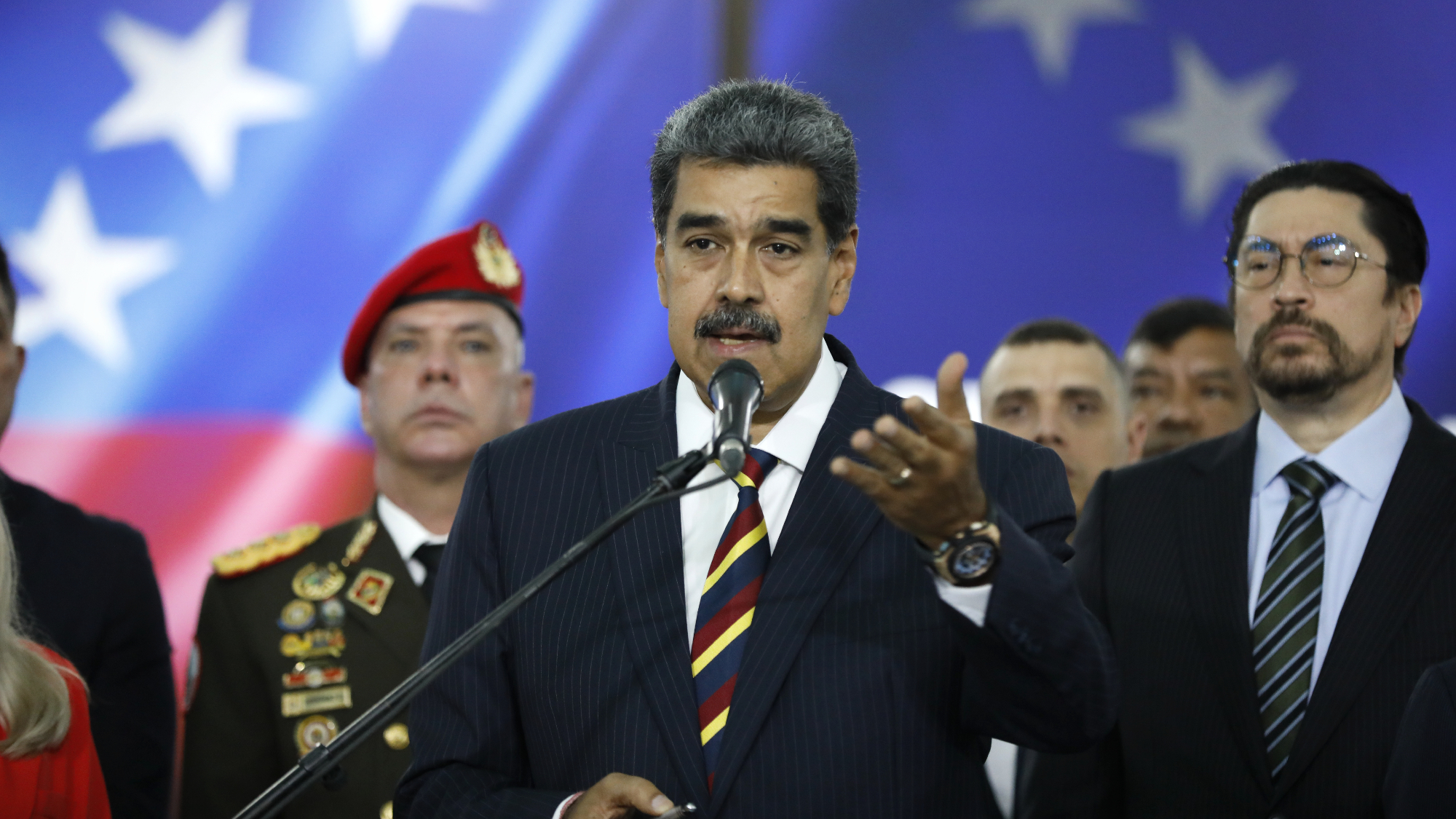US, Venezuelan opposition press Maduro to concede
The Biden administration has offered Venezuelan President Nicolás Maduro amnesty in exchange for giving up power after he lost last month's election


A free daily email with the biggest news stories of the day – and the best features from TheWeek.com
You are now subscribed
Your newsletter sign-up was successful
What happened
The Biden administration has offered Venezuelan President Nicolás Maduro amnesty in exchange for giving up power as "overwhelming evidence emerges" he lost last month's election, The Wall Street Journal said Sunday. Official ballot tallies collected by the opposition show that its candidate Edmundo González Urrutia beat Maduro in a landslide in the July 28 election.
Maduro, whose loyalist-stacked electoral commission declared him the winner without releasing required evidence, has cracked down on dissent, arresting opposition party officials and trying to stop Venezuelans from getting information through WhatsApp and X.
Who said what
The White House has put "everything on the table" in secret negotiations to persuade Maduro to step down, a person familiar with the talks told the Journal. "International action may be the only avenue to force out Maduro," and the U.S. attempt to offer him a "face-saving option dovetails with the opposition's strategy," the outlet said. But the Venezuelan leader's "total grip on power stacks the odds against the Biden administration" and other Latin American countries trying to resolve the standoff.
"Don't mess with Venezuela's internal affairs," Maduro said to the U.S. in a news conference Friday. A National Security Council spokesperson told the Journal the U.S. was "considering a range of options to incentivize and pressure Maduro to recognize the election results," but "the responsibility is on Maduro and Venezuela's electoral authorities to come clean" on the legitimate vote tally.
The Week
Escape your echo chamber. Get the facts behind the news, plus analysis from multiple perspectives.

Sign up for The Week's Free Newsletters
From our morning news briefing to a weekly Good News Newsletter, get the best of The Week delivered directly to your inbox.
From our morning news briefing to a weekly Good News Newsletter, get the best of The Week delivered directly to your inbox.
What next?
Opposition leader Maria Corina Machado on Sunday called for August 17 to be an international day of protest "to support our victory and recognize truth and popular sovereignty." The U.S. and opposition have "five months before Venezuela's presidential inauguration to pull off a deal," the Journal said.
A free daily email with the biggest news stories of the day – and the best features from TheWeek.com
Peter has worked as a news and culture writer and editor at The Week since the site's launch in 2008. He covers politics, world affairs, religion and cultural currents. His journalism career began as a copy editor at a financial newswire and has included editorial positions at The New York Times Magazine, Facts on File, and Oregon State University.
-
 6 of the world’s most accessible destinations
6 of the world’s most accessible destinationsThe Week Recommends Experience all of Berlin, Singapore and Sydney
-
 How the FCC’s ‘equal time’ rule works
How the FCC’s ‘equal time’ rule worksIn the Spotlight The law is at the heart of the Colbert-CBS conflict
-
 What is the endgame in the DHS shutdown?
What is the endgame in the DHS shutdown?Today’s Big Question Democrats want to rein in ICE’s immigration crackdown
-
 ‘Poor time management isn’t just an inconvenience’
‘Poor time management isn’t just an inconvenience’Instant Opinion Opinion, comment and editorials of the day
-
 Kurt Olsen: Trump’s ‘Stop the Steal’ lawyer playing a major White House role
Kurt Olsen: Trump’s ‘Stop the Steal’ lawyer playing a major White House roleIn the Spotlight Olsen reportedly has access to significant US intelligence
-
 Japan’s Takaichi cements power with snap election win
Japan’s Takaichi cements power with snap election winSpeed Read President Donald Trump congratulated the conservative prime minister
-
 Trump links funding to name on Penn Station
Trump links funding to name on Penn StationSpeed Read Trump “can restart the funding with a snap of his fingers,” a Schumer insider said
-
 Trump reclassifies 50,000 federal jobs to ease firings
Trump reclassifies 50,000 federal jobs to ease firingsSpeed Read The rule strips longstanding job protections from federal workers
-
 Supreme Court upholds California gerrymander
Supreme Court upholds California gerrymanderSpeed Read The emergency docket order had no dissents from the court
-
 700 ICE agents exit Twin Cities amid legal chaos
700 ICE agents exit Twin Cities amid legal chaosSpeed Read More than 2,000 agents remain in the region
-
 Trump demands $1B from Harvard, deepening feud
Trump demands $1B from Harvard, deepening feudSpeed Read Trump has continually gone after the university during his second term
